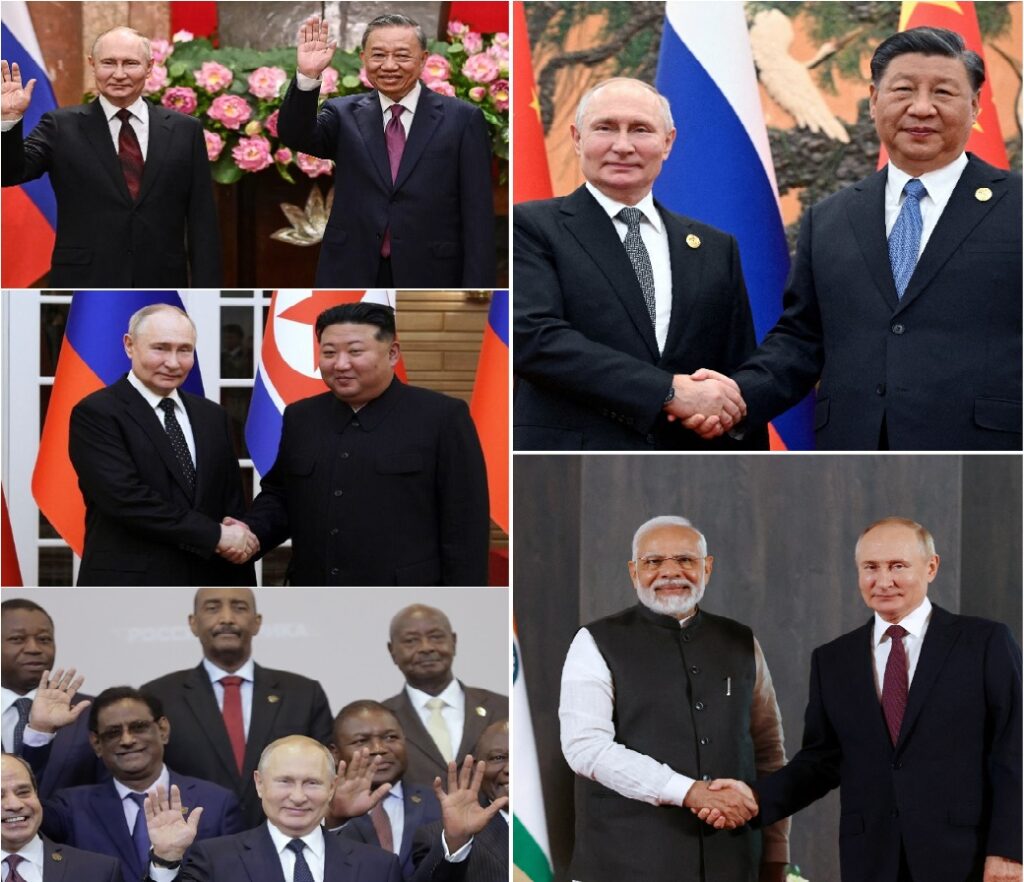
- As geopolitics and geoeconomics increasingly shift towards the Global South, the countries in the region offer vast markets for Russian products and potential economic partnerships, helping Russia to find alternatives to European markets.
- By fostering strategic partnerships with the nations of the Global South, Russia aims to reduce its dependency on the United States and Europe.
- Russia seeks to become an influential player in the Global South, aiming to collectively replace the hegemony of the United States with combined leadership in global representation headed by Russia.
When President Putin came into power in 2000, Russia was still recovering from the turmoil of 1991. The country was healing in terms of geopolitics and economics. At that moment, President Putin wanted to maintain good relations with the Euro-Atlantic countries, believing that such ties would neutralize major security threats to Russia.
Initially, Putin was confident that maintaining good ties with the Euro-Atlantic countries would be beneficial. However, these efforts were not reciprocated. This is evident in two significant events: in 2008, when President Putin proposed NATO membership for Russia, the Western countries responded that they do not invite nations to join NATO; nations must request membership themselves. This marked a turning point. The situation deteriorated in 2008 when the United States led a war against Russia in Georgia, leading to worsened relations.
The relationship further declined after the Crimea incident in 2014, leading to a complete breakdown in 2022 with Russia’s special military operation in Ukraine. This effectively closed the doors for Russia in Europe. Consequently, Putin has been redirecting Russia’s foreign policy towards Asia and the Global South over the past 24 years.
Putin has sought to build stronger ties with countries in Africa, Latin America, and Asia, including India and China. The major reason Russia is interested in maintaining relationships with Global South countries is that these nations have significant potential. The geopolitics and geoeconomics of the world are increasingly shifting towards the Global South. These regions offer vast markets for Russian products and potential economic partnerships, helping Russia to find alternatives to European markets. Putin aims to garner sympathy and support from these countries by portraying the West as responsible for Russia’s crises.
Russia seeks to become an influential player in these regions, aiming to collectively replace the hegemony of the United States with combined leadership in global representation headed by Russia. Two very important countries in this context are China and India. Until 2022, Russia’s relationship with these nations was relatively limited. However, after 2022, there has been a significant acceleration in these relationships for multiple reasons.
One major reason is the military partnership with China. Additionally, President Putin and Chinese leadership share a common strategy of replacing Western dominance. Economically, Russia and China have deepened their ties, with trade between the two countries exceeding $200 billion. They are also developing next-generation technologies together.
The relationship between Russia and India has similarly expanded. Trade between India and Russia was modest, amounting to just a few billion dollars, but it has grown substantially due to the accelerated relationship post-2022. By maintaining and enhancing these relationships, Russia aims to influence global geopolitics significantly.
Putin’s visits to North Korea and Vietnam highlight this shift. By fostering strategic partnerships with these nations, Russia aims to reduce its dependency on the United States and Europe. This new approach involves strengthening military and economic ties with Asian countries and other Global South nations, capitalizing on their markets and geopolitical support.
References:
